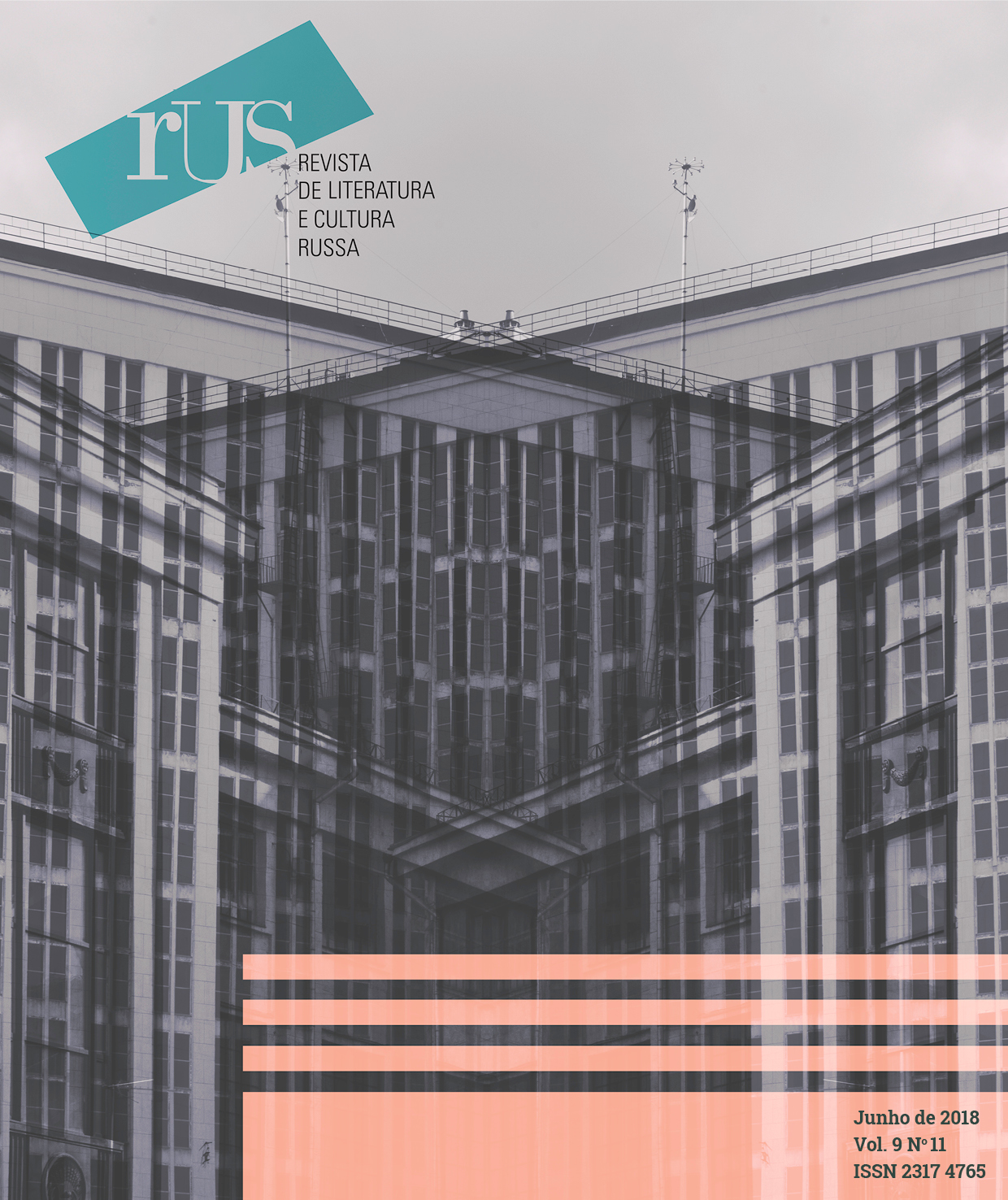The art as a resurrection procedure of the word: Viktor Shklovsky and the philosophy of the common cause
DOI:
https://doi.org/10.11606/issn.2317-4765.rus.2018.145936Keywords:
Shklovsky, Fedorov, Russian Formalism, Russian Cosmism, resurrectionAbstract
Having influenced many figures of the Russian avant-garde, including Vladimir Mayakovsky and Velimir Khlebnikov, Pavel Filonov and Andrey Platonov, by the early 1930s the teachings of Fedorov were suppressed, along with the utopianism of early revolutionary culture. It is all the more interesting to encounter the open evocation of his name and ideas in the work of a completely officially recognized author such as Viktor Shklovsky, who had assumed this status from the 1930s and who had emerged most forcefully at the center of cultural life in the era of the Thaw, when his roots in the avant-garde origins of Soviet culture endowed him with additional symbolic weight. Even more striking, one must note that in Shklovsky’s early works, that was enrooted in the avant-guard art, the name of Fedorov was completely absent. However, in perspective of already revealed Fedorovian stratum one may find the echo of Russian cosmism even in these early works.Downloads
Downloads
Published
Issue
Section
License
Authors who publish in RUS agree to the following terms:
a. Authors retain copyright and grant the journal right of first publication with the work simultaneously licensed under a Creative Commons Attribution 4.0 International License (CC BY-NC-SA 4.0) that allows others to share the work with an acknowledgement of the work’s authorship and initial publication in this journal.
b. Authors are able to enter into separate, additional contractual arrangements for the non-exclusive distribution of the journal’s published version of the work (e.g., post it to an institutional repository or publish it in a book), with an acknowledgement of its initial publication in this journal.
c. Authors are permitted and encouraged to post their work online (e.g., in institutional repositories or on their website) prior to and during the submission process, as it can lead to productive exchanges, as well as earlier and greater citation of published work (See The Effect of Open Access).





